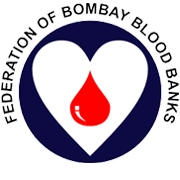About Blood Donation
Let us strive together to ensure safe & adequate Blood supply. Donate Blood and help us save lives
- You are between ages group of 18 to 65 years
- Your weight is 45 kgs or more
- Your Hb is 12.5gm% or more
- Your last blood donation was at least 3 months earlier
- You are healthy and have not recently suffered from jaundice, malaria, typhoid and other transmissible diseases
- You had a major surgery in the last 6 months
- You are a heart patient or suffer from High Blood Pressure, Epilepsy or Diabetes
- You have a history of Cancer, Anemia, Bleeding tendencies
- You had cold/fever in the last one week
- You have received vaccination in last 24 hours
- You are on antibiotics or any other medication
- You have a history of alcoholism, drug addiction
- You had a miscarriage in last 6 months or was pregnant / breast feeding in last 1 year
- You regularly receive treatment with blood /Blood products
- You have shared a needle to inject drugs
- You have had sexual relations with different partners in areas where AIDS is known
- You have / had sexual relations with high risk individuals
- You have tested positive for HIV
I am Anemic and have no blood to donate
Average adult has 5 to 6 litres of blood. Only 350 to 450 ml are drawn at each donation. The volume is replaced within 72 hours. If hemoglobin is low you will not be accepted. The doctor will advise you how to increase hemoglobin.
I can contract disease when I donate
No. The needles used are clean, sterile and disposable. They are used only once and destroyed.
I will put on weight after blood donation
Giving blood will definitely not increase your weight. All you put on is the satisfaction of having helped save a life.
Isn't artificial blood available?
No. Blood cannot be manufactured. It can come only from people. Your gift could mean a life to a sick child, an accident victim or patient facing surgery.
Is there a fee involved when I receive blood transfusion from hospitals
Blood is Free. Blood donors give blood out of concern for those in need. No donor is paid for his donation. Therefore patients are not changed for blood. A processing fee is charged on each unit for testing and storage services provided
10 Lousy Reason not to give blood:
I am afraid to give blood
for everything there is a first time. Just have the courage and try it once. You will wonder why you ever hesitated.
Other people must be giving enough blood
You can gamble your life on that assumption, but please don't gamble on someone else’s life.
My blood isn't the right type
Every type is the "right type". Both rare and common types are needed all the time.
They wouldn't want my blood because of illness
If you have doubts, the staff on duty will review your medical history with you.
I don't have any blood to spare
If you are healthy, you have enough blood. You can regularly donate every 3 months without any problems.
My blood isn't rich enough
A sample of your blood is checked before you donate. If you are found unfit at least you will know the cause and can correct it
I am afraid of being turned down
If you are medically deferred that is okay, at least you tried. You can try again later. Need for Blood never runs out.
You'll take too much and i'll feel weak
The amount taken is less than one pint, replaced within a few hours in your body. You can continue your usual activities after donation
I am too busy
Positively the lousiest excuse ever invented. We can make time, if we really want to.
On an average, the donation takes only 10 minutes and the entire process lasts less than 30 minutes, from registration to resting time. The minutes you spend giving blood may mean life or death to a patient in need. It will be time well spent!
Step 01 - Education
The donor is provided with reading material (IEC) to understand the blood donation process.
Step 02 - Registration
Registration Form must be filled and a local address must be provided for registration. A health assessment questionnaire will be given to answer and personal information will be recorded
Step 03 - Medical Screening
A doctor will go through the questionnaire with you in detail. You will need to sign a declaration to confirm that information given is true. A mini-physical examination, including checking of blood hemoglobin level, weight, height, blood pressure will be carried out.
Step 04 - Blood Donation
A trained medical person will draw the blood. All blood collection equipment, including needles are used only once and disposed after each use, and hence there are no chances of transmitting any infection through blood donation procedure.
Step 05 - Rest and Refreshments
Light refreshments will be served after donation. You should rest for at least 10 minutes before leaving
